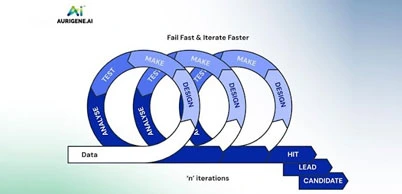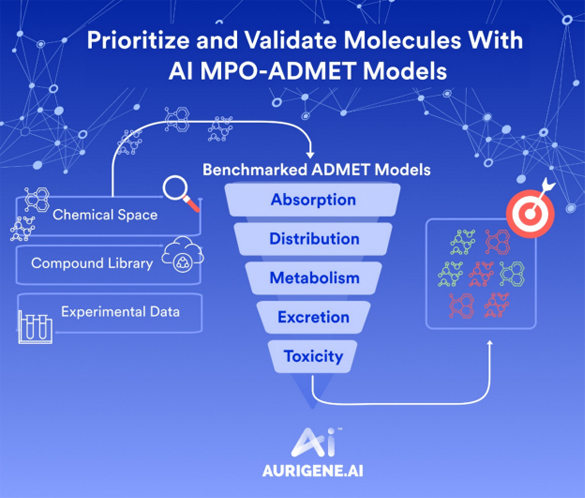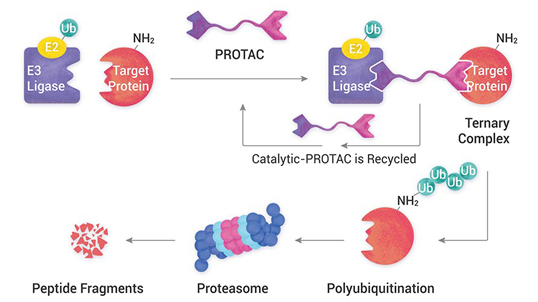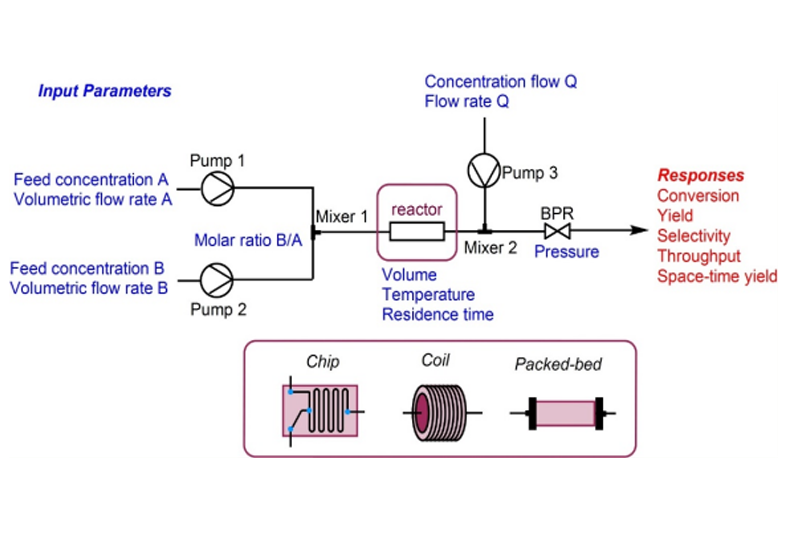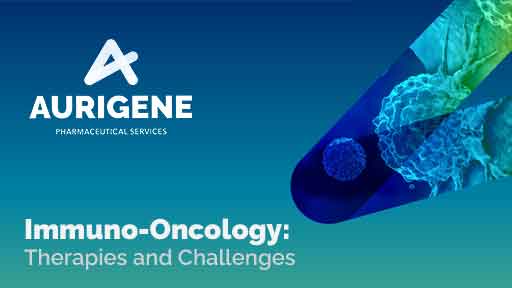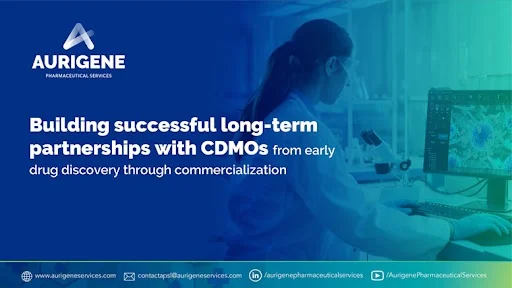

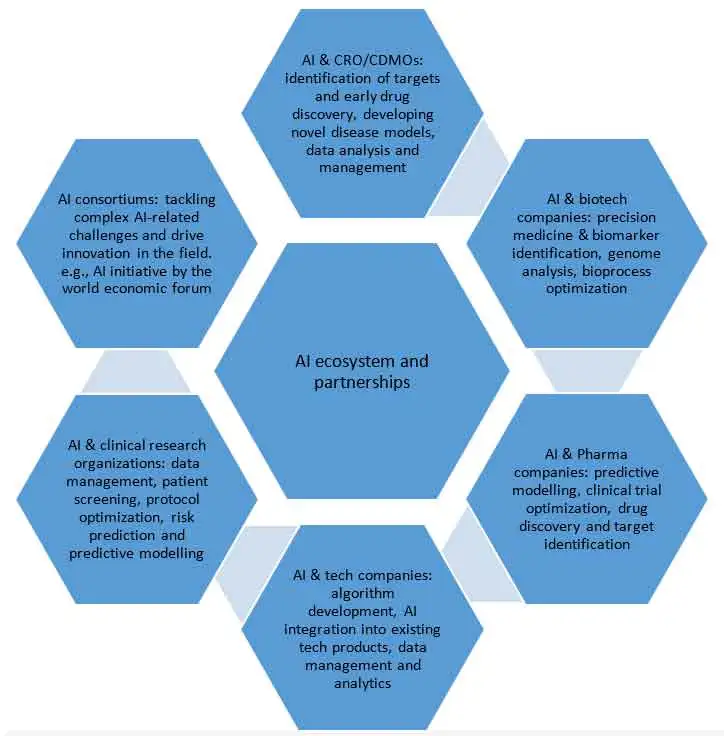
Artificial Intelligence (AI) is a hot topic and a technology that will revolutionize and transform industries. In pharma, AI has the potential to advance clinical research and holds great promise for transforming the process involved in drug discovery, development, manufacturing, and distribution.
Indicators are the rapidly growing number of AI-enabled biologics driven by this technology and evolving discovery research. AI algorithms and their advancements have already started to transform drug discovery research. AI can enhance efficiency, reduce costs, and improve the speed and accuracy of diagnosis and treatment choices. It is regarded as a tool to uncover not only new molecules but also new targets. Proof-of-concept projects keep yielding successful results in research studies and commercial partnerships.
The application of AI in drug design:
In recent times, computer-aided designs have replaced the conventional methods of drug design. AI facilitates drug designing by filtering datasets for relevant compounds and advanced lead modification. Computer-Aided Drug Design (CADD) and informatics capabilities provide effective solutions for AI model prediction. Also, the target proteins are easily identified using AI, which improves the efficiency of the designed drug. Using AI technology in drug design decreases the potential hazards in preclinical trials and is very cost-effective. All this makes AI a successful alternative to evaluate the properties of a drug molecule.
Partnering with AI companies:
With rapidly growing proof of AI tech feasibility and its innovation potential, pharma companies and CRO/CDMOs are eager to collaborate with AI companies. Successful collaborations or platform applications can assist in speeding up the drug development process and improve data analysis and decision-making. A growing number of collaborative breakthrough discoveries confirms that this collaborative approach will transform drug discovery research.
Some examples of breakthrough discoveries in AI-enabled drug discovery:
- Deep genomics AI-driven platform: For predicting a new target and oligonucleotide for Wilson disease.
- AlphaFold, developed by DeepMind: For predicting the 3D shape of protein from amino-acid sequence.
- Insilico Medicine: Rapidly Identifying potent inhibitors for DDR1 kinase
- Peptilogics: Predicting peptides that can bind to various proteins, even with just the primary sequence of the protein. This breakthrough has unlocked the potential to design peptide drugs for established and novel targets.
Potential benefits of AI in addressing drug discovery, development, and manufacturing challenges
AI is not only a tool for lead identification but also a general tool to boost research, identify new targets, and develop novel disease models. The main focus of AI research is still on small molecules as a therapeutic modality. AI plays a strategic role in the data-centric model of innovation.
Big tech companies enter partnerships with both start-ups and pharma companies to consolidate resources, mainly in personalized medicine, cell and gene therapy, and molecule prediction software. AI in the drug development industry has demonstrated resilience and growth despite the challenges and uncertainties of pandemic times.
CADD is one of the important applications for quantum computing in the pharmaceutical and biotech sector. This entails various processes such as identifying and validating targets, hit generation, optimizing leads, predicting protein structures, , and engineering and designing proteins. By enabling rapid analysis of intricate data sets, quantum computing is anticipated boost the utilization of high-throughput technologies further. Furthermore, it is speculated that quantum computing will facilitate the development and production of novel medicines.
Quantum computing combined with AI offers a range of other applications, such as deciphering disease mechanisms, optimizing clinical trials and the development of synthetic routes, boosting the efficiency of formulation development, improving large-scale manufacturing processes, and advancing supply chain modeling.
Utilizing big data strategies will become cost-effective and lead to improved decision-making, thereby increasing the efficiency of clinical trials. The initial projects using artificial intelligence have shown promising outcomes, generating tremendous excitement.
The role of a CRO/CDMOs in facilitating the AI ecosystem:
With the advent of the AI revolution in the pharmaceutical and healthcare sectors, CRO/CDMOs are leveraging diverse AI technologies to solidify their position in the global market. AI has revolutionized drug discovery and partnership with CRO/CDMOs can help validate the power of AI with the precision of lab experiments. CRO/CDMOs can support the validation of your AI model by:
- Synthesis and material generation
- Assay development
- Biological testing: ADME/PK and toxicology studies
- First principles validation using CADD
References:
https://www.dcatvci.org/features/pharma-innovation-ai-in-drug-manufacturing/
About author:

Kranti Karande
Kranti is a ‘Content Specialist’ in Marketing team at Aurigene Pharmaceutical Services, Hyderabad. Kranti completed Integrated BS-MS (Biology) from Indian Institute of Science Education and Research (IISER) Mohali and a Diploma in Science Journalism from Indian Science Communication Society (ISCOS). She worked as a Senior Research Associate in Cell Line Engineering at Syngene International Ltd. She previously worked as a Science Communicator at various national institutes in India, including IISER Pune, NCCS Pune, and inStem Bangalore.
Latest Posts
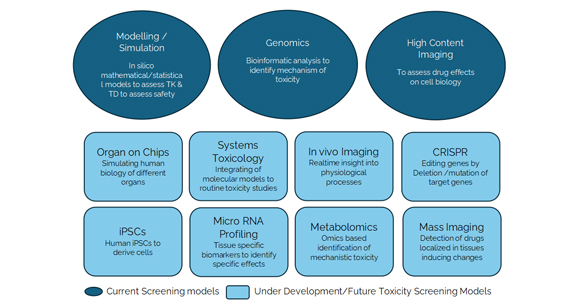
Good practices in non-clinical toxicology assessment to accelerate IND and NDA Submissions
You are about to leave Aurigene Pharmaceutical Services and affiliates website. Aurigene Pharmaceutical Services assumes no responsibility for the information presented on the external website or any further links from such sites. These links are presented to you only as a convenience, and the inclusion of any link does not imply endorsement by Aurigene Pharmaceutical Services.
If you wish to continue to this external website, click Proceed.


Leaving already?
Don't forget to join us at
CPHI Worldwide 2023.
October 24th-26th, 2023 | Barcelona, Spain
Get ready to accelerate your drug’s journey to the market

